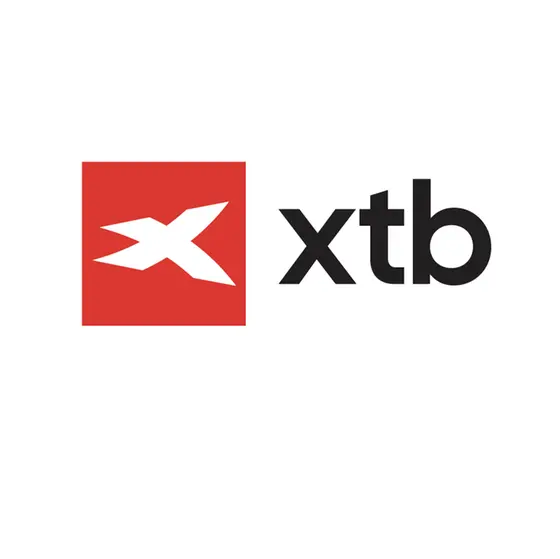Cairo, Egypt: The British-Egyptian Business Association (BEBA) held its 7th virtual conference to discuss the future of healthcare investment in Egypt in light of the ongoing pandemic.
The successful webinar hosted a number of experts and industry leaders within the healthcare and business fields including Dr. Ahmed Ezz El Din, CEO Cleopatra Hospitals Group, Maged George, Chairman Export Council for Medical Industries, Nabil Besri, General Manager GSK Consumer Healthcare North and Central Africa, Mansoor Ahmed, Director of Research & Advisory, Healthcare, Education & PPP, Colliers- MENA Region, Khaled el Shaarany, CEO AXA Africa Health; and moderated by Andrea Tithecott, Partner Head of Healthcare, Al Tamimi & Company. The key note speech was delivered by his Excellency Dr. Ashraf Hatem, Former Minister of Health and Chairman of the Health Committee in the House of Representatives.
Dr. Ashraf Hatem praised President Abdelfattah El-Sisi’s health care system reconstruction, revealing that the sector’s investment rate in Egypt reached over 7.5 Billion dollars. He also praised the sector’s resilience in the COVID-19 crisis, as the strong and well-defined workforce helped curb the disease, while many health care units crumbled around the world.
Nabil Besri, General Manager GSK Consumer Healthcare North and Central Africa, stated transforming the healthcare environment is a top priority for the Egyptian government and there are many large initiatives ongoing amongst them the implementation of the new Universal Healthcare program. We are very proud of the progress achieved by Egypt in the last few years and look forward to playing our role and setting the scene for the successful implementation of a Selfcare program in Egypt and increasing health literacy for consumers to take preventive health measures allowing for an overall better health and an optimized health economy.
Maged George, Chairman Export Council for Medical Industries, discussed the potential of Egypt making use of its binding agreements with organizations such as SADC and COMESSA to establish trade routes and export medical equipment to surrounding African and ME states, praising Egypt’s strong medical equipment industrialization sector and highlighting that healthcare investment in Africa has reached 16bn dollars, but has more potential to grow. He also revealed that Egypt is trying to establish bilateral agreements with the ministries of health of several African nations in order to register our products over there and establish strong trade agreements.
Dr. Ahmed Ezz El Din, CEO Cleopatra Hospitals Group, highlighted Cleopatra Hospital Group’s endeavors in the Egyptian healthcare investment explaining that the group started with only 1 hospital and now owns 7 large hospitals; 2 of them are dedicated for treating COVID-19 patients.
Ezz El Din affirmed that Egypt is an ideal location for healthcare investment based on Cleopatra Hospital Group’s expansion rate as 2.5mn children are born every year which results in a higher demand on medical services. He then explained CHG has gone through several institutional changes over the past couple of years transforming from a family business to a corporate entity which led to the efficiency when it comes to managing and utilizing resources. He also pointed out that the group is currently looking to capitalize on their national success and expand to Africa in order to benefit from the growing African healthcare investment market. He also revealed that the group is currently developing a professional software that will be used to boost the medical facilities within universities.
Mansour Ahmed, Director of Research & Advisory, Healthcare, commented on the future of healthcare investment rates in Egypt based on a constantly increasing population, revealing that by 2030 Egypt will require approximately 38,000 new beds (based on Egypt’s ratio 1.3 beds / 1,000 population) with an estimated investment of 12 to 15 billion dollars and up to 120,000 new beds (based on MENA ration of 1.9 beds / 1,000 population) with an estimated investment of 35 to 40 billion dollars, with half of these investments coming from the public sectors to serve the increasing population.
Mansour revealed that beside advising private operators and investors, one of Colliers main aim when it comes to healthcare investment in Egypt is to promote private-public partnership in order to increase the overall hospital count in relation to Egypt’s increasing population. He further highlighted that an additional 88,000 doctors, 78,000 nurses and 18,000 pharmacists will be needed to serve the ongoing population demands by 2030, suggesting increasing demand for medical education institutions. Mansour stated that Egypt and the African region should follow in the footsteps of Dubai and establish healthcare cities to meet the demand for high-quality, patient-centered healthcare, and in order to attract medical tourists and also promote wellness tourism in North Coast and other coastal developments to increase demand for second homes and resorts by offering beauty and cosmetic, health farms and rehabilitation centers. He explained that health cities proved a wide range of services in healthcare, medical education and research, pharmaceuticals, medical equipment, wellness and allied support contributing to Egypt GDP and creating jobs. He also highlighted that Colliers is working with number of international healthcare operators and investors who are keen to expand into Egypt.
Lastly, Khaled el Shaarany, CEO AXA Africa Health, highlighted that health insurance penetration in Egypt is among the lowest worldwide resulting in 80% of medical expenses being covered as an “Out of Pocket” expense for Egyptians. He added that medical bills will keep on increasing because of improved population longevity, the costly advancement of healthcare technologies and macro-economic drivers further burdening Egyptians. El Shaarany explained that this situation will not be economically tenable especially with the Egyptian population’s tendency to immediately seek expensive specialist doctors, the most expensive branded treatments or non-necessary medical interventions.
He revealed that AXA’s answer to this challenge is closer integration along the health value chain between the payer (insurer) and the healthcare service provider. AXA launched an African initiative, based in Egypt, to provide primary and secondary healthcare through its own chain of polyclinics, digital health and home visits with a massive emphasis on patient comfort and dignity as well as cost control by avoiding fraud, abuse and unnecessary expenses. El Shaarany concluded that this initiative, branded OneHealth, is already operating 4 clinics in Cairo with 4 further openings by the end of the year as well as launching in Nigeria and west Africa.
© Press Release 2021
Disclaimer: The contents of this press release was provided from an external third party provider. This website is not responsible for, and does not control, such external content. This content is provided on an “as is” and “as available” basis and has not been edited in any way. Neither this website nor our affiliates guarantee the accuracy of or endorse the views or opinions expressed in this press release.
The press release is provided for informational purposes only. The content does not provide tax, legal or investment advice or opinion regarding the suitability, value or profitability of any particular security, portfolio or investment strategy. Neither this website nor our affiliates shall be liable for any errors or inaccuracies in the content, or for any actions taken by you in reliance thereon. You expressly agree that your use of the information within this article is at your sole risk.
To the fullest extent permitted by applicable law, this website, its parent company, its subsidiaries, its affiliates and the respective shareholders, directors, officers, employees, agents, advertisers, content providers and licensors will not be liable (jointly or severally) to you for any direct, indirect, consequential, special, incidental, punitive or exemplary damages, including without limitation, lost profits, lost savings and lost revenues, whether in negligence, tort, contract or any other theory of liability, even if the parties have been advised of the possibility or could have foreseen any such damages.



















